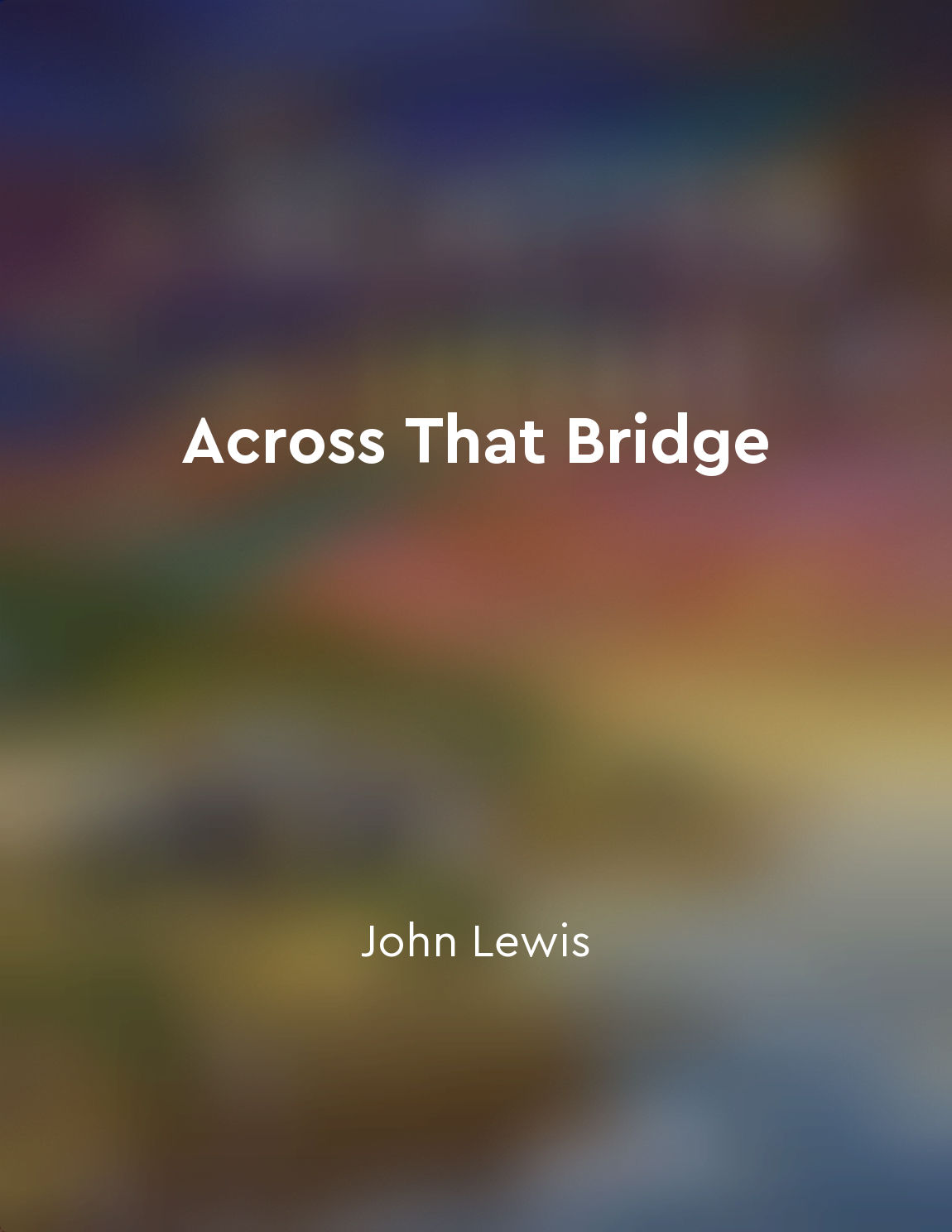Challenging the status quo from "summary" of The Student Guide to Freire's 'Pedagogy of the Oppressed' by Antonia Darder
To challenge the status quo is to question the existing power structures and systems that perpetuate oppression and inequality. It involves critically examining the norms and practices that are often taken for granted, and advocating for change to create a more just and equitable society. This concept is central to Freire's Pedagogy of the Oppressed, as it calls for a transformation of education that empowers individuals to think critically and act in solidarity with others to challenge the oppressive forces that shape their lives. Challenging the status quo requires a willingness to confront the uncomfortable truths about the world we live in, and to resist the temptation to simply accept things as they are. It involves recognizing the ways in which power operates to marginalize certain groups of people, and taking action to dismantle these structures of domination. This process can be difficult and even dangerous, as it often involves going against the grain and facing opposition from those who benefit from the status quo. In the context of education, challenging the status quo means moving away from traditional models of teaching that reinforce hierarchical relationships between teachers and students, and instead embracing a more participatory and democratic approach to learning. This requires educators to see students as active agents in their own learning process, rather than passive recipients of knowledge. It also involves creating spaces for dialogue and collaboration, where diverse perspectives are valued and respected. By challenging the status quo, we can begin to imagine and create a world where all people are able to fully realize their potential and live with dignity and respect. This process is not easy, but it is necessary if we are to build a more just and equitable society for all. As Freire reminds us, "Washing one's hands of the conflict between the powerful and the powerless means to side with the powerful, not to be neutral."- Challenging the status quo is a fundamental aspect of Freire's Pedagogy of the Oppressed, as it calls for a radical reimagining of education and society. It requires us to confront the injustices that exist in the world and to work towards a more equitable and inclusive future for all. By embracing this concept, we can begin to transform our world and create a better future for generations to come.
Similar Posts
Confronting uncomfortable truths leads to growth
When we are confronted with uncomfortable truths, it can be challenging. It can make us feel uneasy, upset, or even defensive. ...
Human potential is limitless when nurtured and supported
According to Rutger Bregman, the idea that human potential is boundless when given the right conditions is a powerful one. Thro...
Educational institutions can perpetuate or challenge injustice
Michael W. Apple argues that educational institutions play a critical role in either perpetuating or challenging injustice with...
Discovery
The road unfurls before us like a ribbon, twisting and turning through the vast expanse of South America. As we navigate its tw...
Teachers have the power to challenge oppressive systems
Teachers play a crucial role in shaping the educational experiences of students. They have the power to challenge oppressive sy...

Never give up on the fight for justice
The struggle for justice is not a sprint, but a marathon. It is a long and arduous journey that requires unwavering dedication ...
Validate students' experiences
To truly embrace culturally responsive teaching, educators must prioritize the validation of students' experiences. This entail...
Embrace cultural differences
Cultural differences are an inherent part of our society, reflecting the rich tapestry of human experiences and perspectives. E...
Role of language in liberation
The idea of the role of language in liberation is a crucial concept in Freire's Pedagogy of the Oppressed. Language is not just...
Historical context influences individual experiences
In understanding the complexities of individual experiences, it is crucial to acknowledge the profound impact of historical con...

